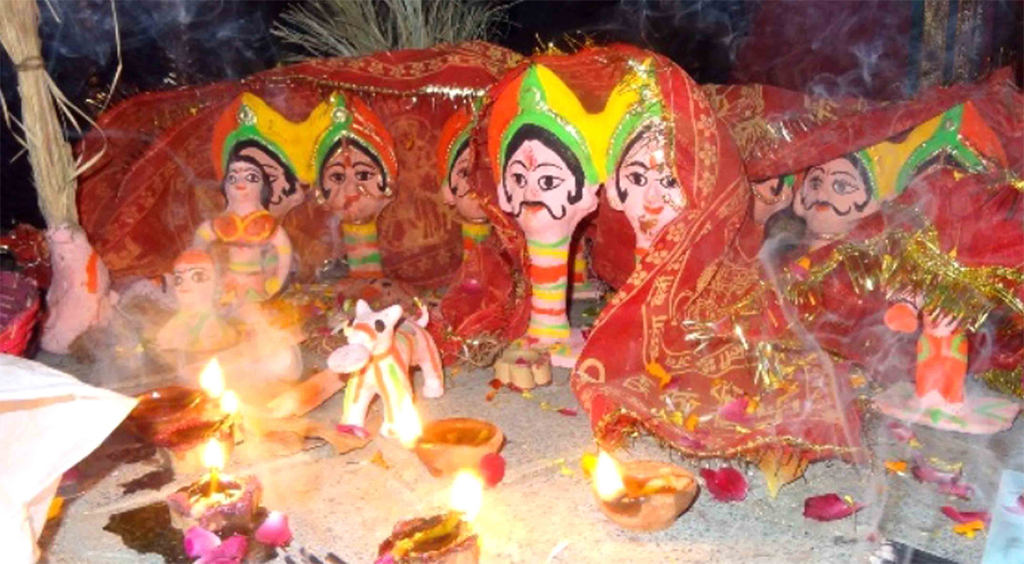

Sama-Chakewa, a festival that marks the affectionate brother-sister relationship in Maithili communities, is being observed with enthusiasm.
This festival starts from Panchami, a day before the festival of Chhath, and lasts for 10 days. For ten days, the women of Mithilanchal wish for the longevity of their brothers and perform the Sama-Chakewa songs and dance.
On the first day of the 10-day festivity, women collect clay, make idols, and decorate them with various colors.
Carrying the same idols in bamboo baskets, they sing in chorus in the Maithili language and dance across roundabouts, thoroughfares, public spaces, and temples throughout the festivity.
While observing the rituals, women also wish for the long and healthy lives of their brothers. Married women visit their maternal homes for the celebration while those having no brothers observe the festivity with cousins in their locality.
The idols are later submerged in a pond or river or in recently plowed land on the eleventh day of the full moon to mark the end of the festival.
This cultural festival has its roots in the ancient legend. The legend has it that Sama, a young daughter of Lord Krishna was once falsely accused of wrongdoings and cursed to be a bird. Her brother, Samba, took fearless action out of love towards his sister, which finally brought Sama back to human form.
According to popular belief playing Sama Chakewa will prolong the life of brothers and strengthen the relationship with sisters.
Celebrated in various districts across Tarai including Mahottari, Sarlahi, Siraha, Dhanusha, Saptari, Bara, and Parsa, the festival is also observed with verve in many bordering towns in India. In Mithilanchal, it usually begins a day before the Chhat festival.